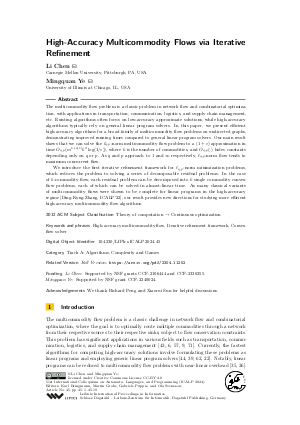LIPIcs.ICALP.2024.45.pdf
- Filesize: 0.78 MB
- 19 pages

 Creative Commons Attribution 4.0 International license
Creative Commons Attribution 4.0 International license







































































Feedback for Dagstuhl Publishing